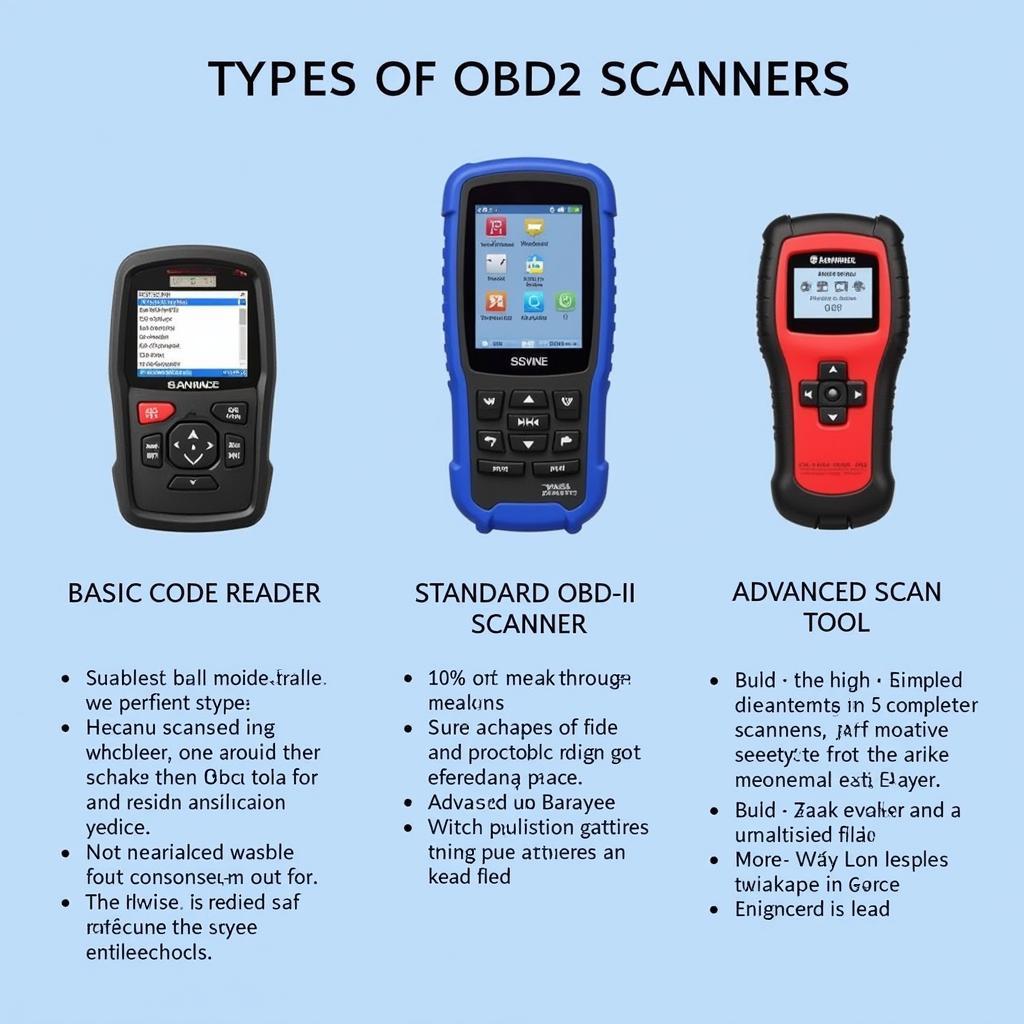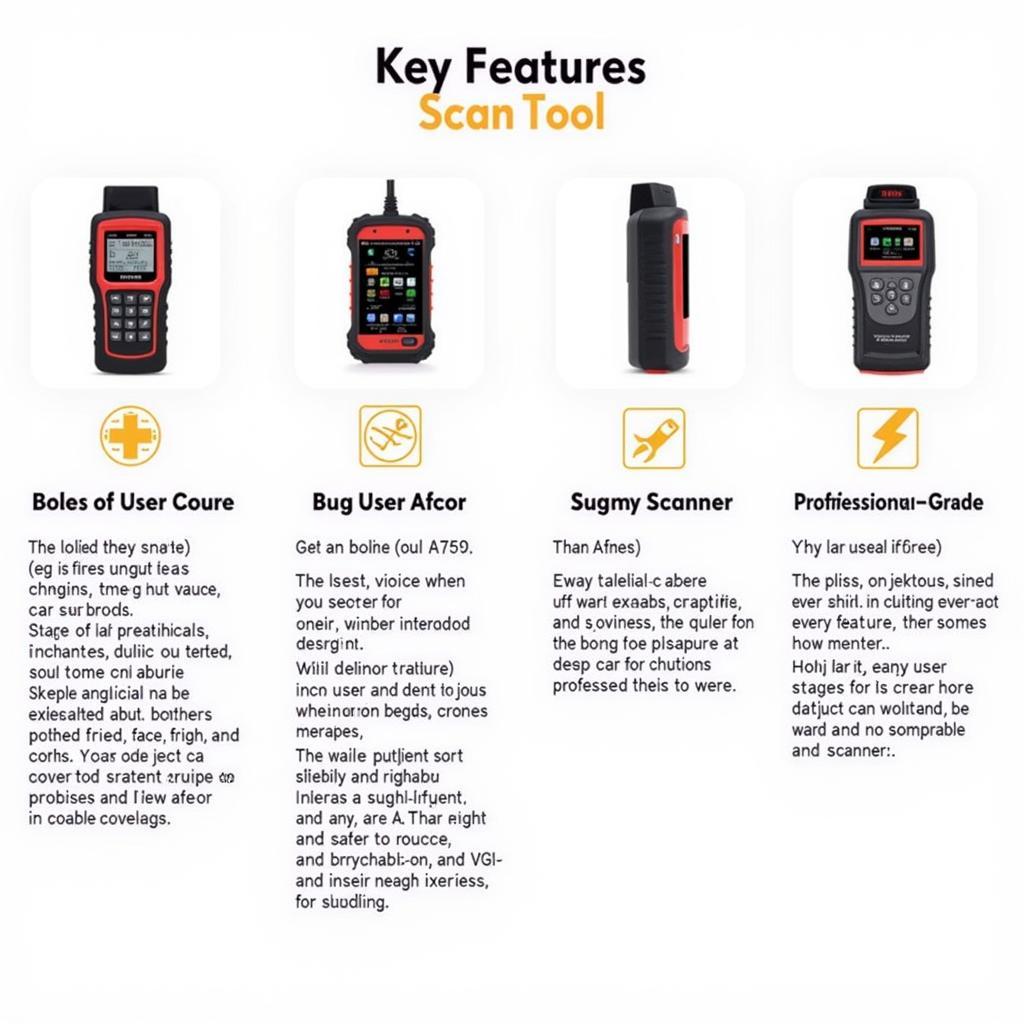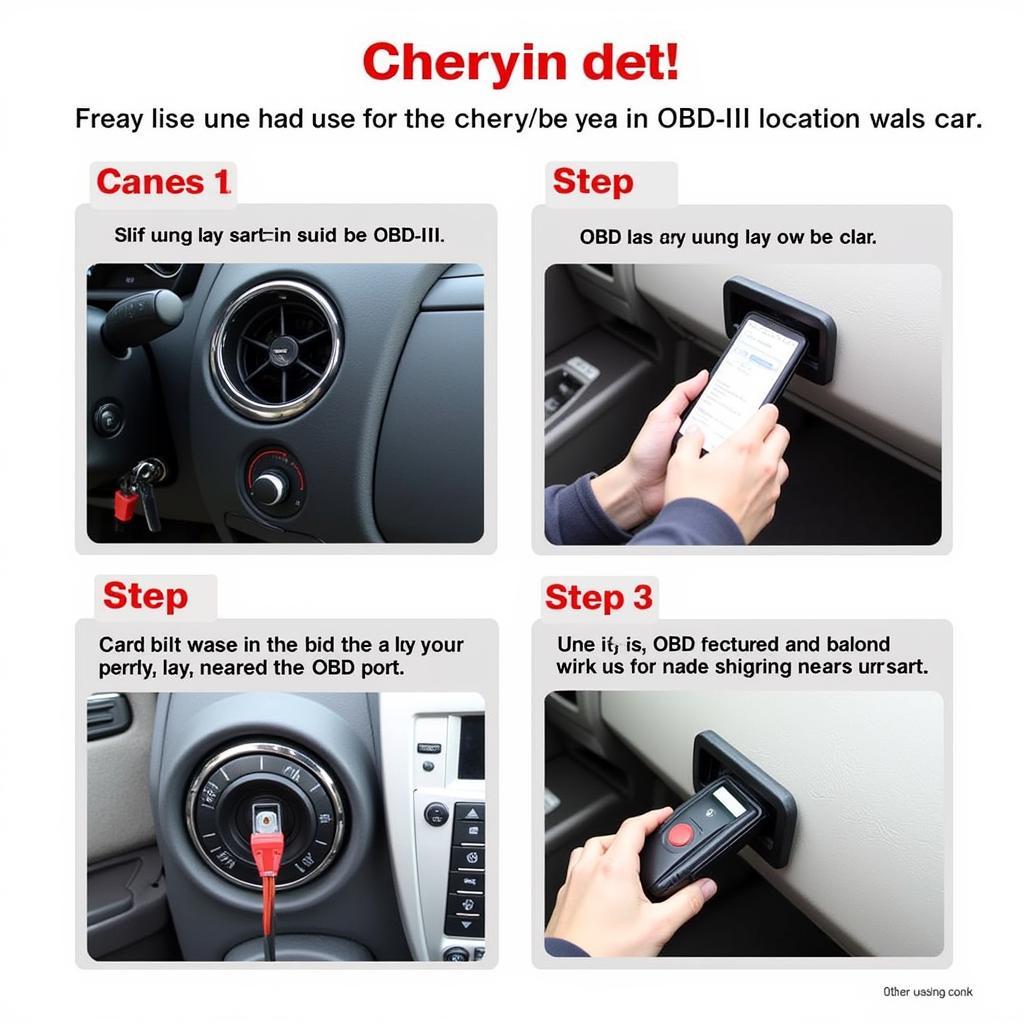Finding the best car scan tool for personal use can feel overwhelming with so many options available. This guide will help you navigate the market and choose the perfect diagnostic tool to meet your needs and budget. We’ll cover everything from basic code readers to advanced professional-grade scanners, empowering you to take control of your vehicle’s maintenance.
Understanding Your Needs: Why Get a Car Scan Tool?
Before diving into the specifics of different scan tools, it’s essential to understand why you need one in the first place. A car scan tool allows you to read and interpret diagnostic trouble codes (DTCs) generated by your vehicle’s onboard computer. These codes indicate potential issues with various systems, from the engine and transmission to the airbags and ABS. Having a personal scan tool can save you time and money on trips to the mechanic, giving you the power to diagnose and potentially fix minor problems yourself. Do you want to simply read and clear check engine lights or delve deeper into your car’s systems? Identifying your needs will guide your purchasing decision.
Types of Car Scan Tools for Personal Use
There’s a wide range of car scan tools available, each with varying capabilities and price points. Understanding the differences will help you choose the best fit for your needs.
Basic Code Readers
These are the most affordable options, primarily designed to read and clear basic DTCs. They are ideal for the casual user who wants to understand why their check engine light is on.
OBD-II Scanners
These offer more features than basic code readers, including the ability to view live data streams from various sensors, monitor fuel economy, and perform emissions tests. They are a good balance between affordability and functionality.
Advanced Scan Tools
These are more expensive but offer a comprehensive suite of diagnostic capabilities, including bi-directional control, advanced coding functions, and access to manufacturer-specific codes. They are suitable for experienced DIYers and professionals.
 Types of OBD2 Scanners for Personal Use
Types of OBD2 Scanners for Personal Use
Key Features to Consider
When choosing a car scan tool, consider these essential features:
- Compatibility: Ensure the tool is compatible with your vehicle’s make, model, and year. Most modern cars use the OBD-II standard, but older vehicles may require different connectors.
- User-Friendliness: Look for a tool with an intuitive interface, clear display, and easy-to-understand instructions.
- Data Logging and Playback: This feature allows you to record data streams and playback later for analysis.
- Software Updates: Regular software updates ensure compatibility with newer vehicle models and provide access to the latest features.
- Durability: Choose a robust and well-built tool that can withstand regular use.
Top Recommended Car Scan Tools for Personal Use
Here are some of the top-rated car scan tools available for personal use, catering to different budgets and needs:
- BlueDriver: A popular choice known for its user-friendly app and comprehensive diagnostic capabilities.
- FIXD: A budget-friendly option that provides clear explanations of DTCs and potential fixes.
- ANCEL AD410: A versatile scanner with advanced features like live data graphing and ABS/SRS diagnostics.
- Innova CarScan Pro 5610: A professional-grade tool offering bi-directional control and manufacturer-specific code reading.
 Top Rated Car Scanners for Personal Use
Top Rated Car Scanners for Personal Use
How to Use a Car Scan Tool
Using a car scan tool is generally straightforward. First, locate your vehicle’s OBD-II port, usually under the dashboard on the driver’s side. Plug the scanner into the port, turn on the ignition, and follow the on-screen instructions to read and clear codes.
“A good car scan tool empowers car owners to understand their vehicles better,” says Michael Stevens, Automotive Diagnostic Specialist at Stevens Automotive Solutions. “It’s like having a personal mechanic in your pocket.”
Maintaining Your Car Scan Tool
Keeping your scan tool updated with the latest software is crucial for optimal performance. Also, ensure the device is stored properly to prevent damage.
 How to Use a Car Scan Tool
How to Use a Car Scan Tool
Conclusion
Choosing the best car scan tool for personal use depends on your individual needs and budget. By understanding the different types of scanners available and considering the key features discussed, you can make an informed decision that empowers you to take control of your vehicle’s maintenance. Investing in a quality scan tool can save you money in the long run and give you peace of mind knowing you can quickly diagnose and address potential car troubles.
“Regularly scanning your car with a reliable tool can prevent small problems from becoming major headaches,” adds Susan Miller, Lead Technician at Miller’s Auto Repair.
FAQ
- What is an OBD-II port?
- What are DTCs?
- Can I fix my car myself using a scan tool?
- How often should I scan my car?
- Do all cars have an OBD-II port?
- What is the difference between a code reader and a scanner?
- How do I update my scan tool’s software?
Scenarios for using a car scan tool
- Check Engine Light: Diagnose the reason behind the illuminated warning light.
- Car Maintenance: Monitor various parameters and identify potential issues before they escalate.
- Used Car Inspection: Assess the health of a used car before purchasing.
- DIY Repairs: Troubleshoot specific problems and verify repairs.
Further Reading
- Understanding OBD-II Codes
- Choosing the Right Scan Tool for Your Needs
- Advanced Diagnostic Techniques
Contact us for support via WhatsApp: +1(641)206-8880, Email: [email protected] Or visit us at: 276 Reock St, City of Orange, NJ 07050, United States. We have a 24/7 customer support team.


